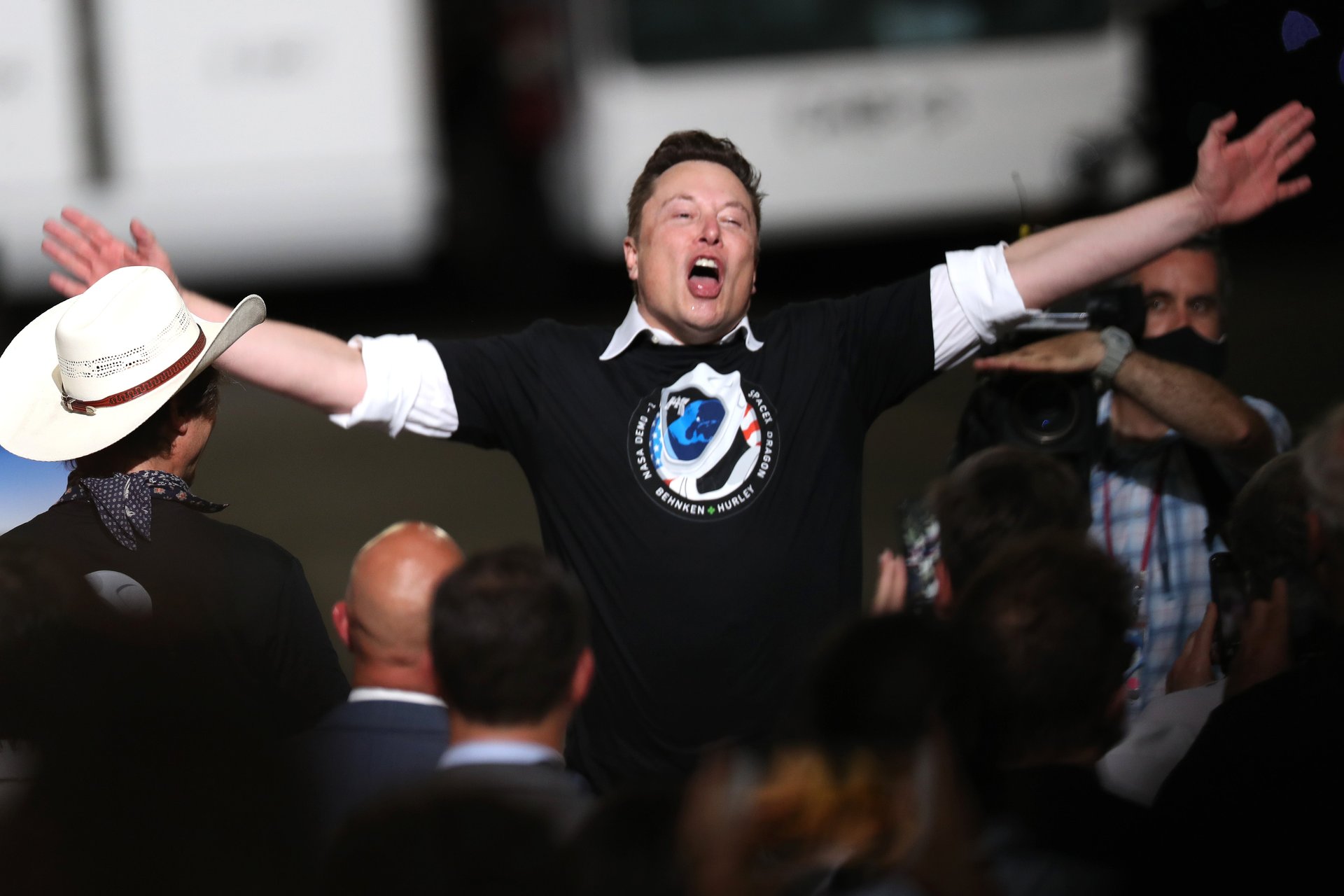At Twitter, Elon Musk is tilting at his own windmills
After buying Twitter, Musk still needs someone—or something—to war against. How about the algorithm?

Elon Musk locked his Twitter account this week, having convinced himself that something was awry within the website’s all-powerful algorithm. “Made my account private until tomorrow morning to test whether you can see my private tweets more than my public ones,” Musk wrote just after midnight US eastern time on Feb. 1.
It’s possible that Musk, once hailed as a Silicon Valley luminary for his work, has to try highly publicized experiments like this in order to divine what ghosts are in the machine that he just spent a large fraction of his wealth acquiring. But if you don’t buy that idea, then you might be onto something.
The decision to run this particular experiment appears to have been inspired by chatter among a band of right-wing Twitter influencers with whom Musk frequently pals around on the website he bought for $44 billion.
It’s another leg of his crusade against Twitter, a mission that began long before he took over the company. Musk is still tilting at windmills, and you’d be wrong to assume that he’ll stop just because he himself now controls those very windmills.
Elon Musk needs an enemy to rage against
The Elon Musk playbook is remarkably similar to the one Donald Trump employed in his political ascent. Trump ran for US president—and won—on the promise to “drain the swamp” in Washington, upend the establishment, and root out corrupt forces in government. But what happened when he won the 2016 election and became head of the federal government’s executive branch? He continued to spar against dark forces within the “deep state,” an imaginary legion of government employees conspiring against him. Trump took credit for his policy wins and blamed his losses—if not on the press, Democrats, and other enemies—then on the deep state.
Since buying Twitter and taking it over in October, Musk similarly has continued to villainize the company, even after laying off most of the staff. First, he laid off most of the staff: (CNBC reports that only 1,300 people work at Twitter now, which is down from 7,500 pre-takeover.)
Next he dug in old internal communications of Twitter’s prior management and leaked them to independent journalists as part of something he dubbed The Twitter Files, a series of unremarkable reports that have attempted to expose Twitter’s content moderation practices, its communications with the US government, and its temporary blocking of the New York Post’s Hunter Biden laptop story as malicious abuses of power.
In doing so, he’s played the role of a shocked outsider even while owning and running Twitter—now as a private company, and thus one that’s naturally less transparent about its goings-on.
Elon Musk will never stop investigating Twitter
It makes sense that Musk is confused about how his company works, considering he laid off most of the people who could fill him in. But surely one of the company’s reported 550 remaining engineers could inform him whether making an account private boosts engagement, especially considering Twitter had just launched a new For You page that relies on a heavy-handed recommendation algorithm.
Is it possible that something has gone awry with the algorithm? Sure. Is it possible that private accounts are getting a boost? I guess so, but that sounds unlikely since the lock on the accounts limit the potential audience for a tweet.
Musk, meanwhile, unlocked his account on Feb. 2 and tweeted that he learned something from the experiment. “This helped identify some issues with the system,” he wrote. “Should be addressed by next week.”
Musk’s quest is either foolhardy—running unscientific tests in public—or, more likely, a way to signal he’s still not totally in control, and therefore not to blame for Twitter’s caprices.
Musk has long sought control of Twitter, but his legitimacy with his faithful super-fans lies in his war against the establishment forces that he claims have long abused their power. Now he’s entered the labyrinth but has yet to slay the Minotaur within.